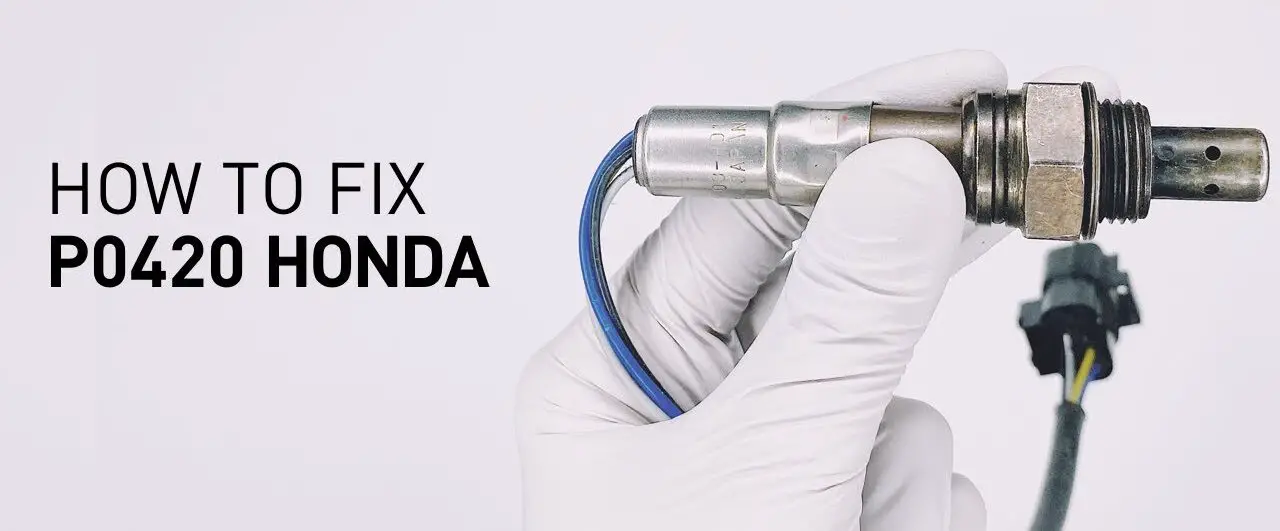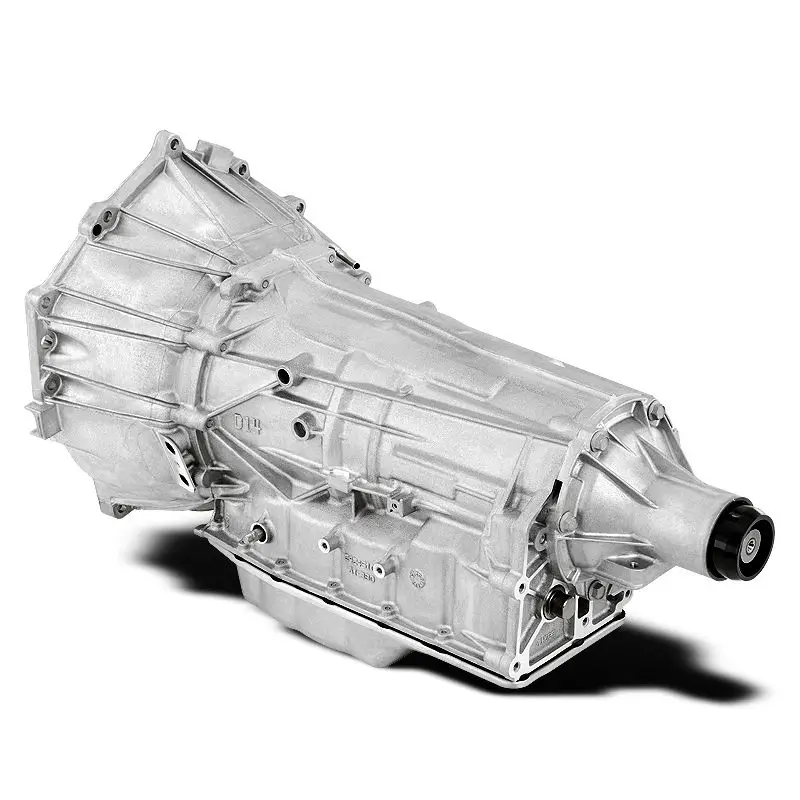If you’re experiencing a gasoline-like smell from your spark plug, it’s important to get it checked by a certified mechanic.
The smell could be an indication of a problem with your vehicle.
In this article, we’ll explore the common reasons why your spark plug smells like gas and how to solve it.
Loose spark plugs, damaged oil caps, failing distributors, sunken engines, and oil leak problems are some of the common culprits behind the pungent fuel smell of your spark plug.
We’ll take a closer look at each case and provide you with the best solutions.
Keep reading to learn more about spark plug smells like gas and how to fix it.
Why Does Spark Plug Smells Like Gas?
1: Loose spark plugs
A spark plug is responsible for transmitting the electrical current from the ignition system to a combustion chamber with the purpose of igniting the pressurized fuel-and-air mixture. If it is not tightened well or to an incorrect torque, the sealing rings are not properly seated, causing the fumes to get out of it and generate a gasoline smell. This can lead to a reduction in your vehicle’s performance, pre-ignition problems, detonation, dead cylinder, and drop in engine power.
2: Damaged oil cap
An oil cap, or oil reservoir cap, prevents oil from evaporating from the fuel tank. When it gets damaged due to rusting or faulty O-rings, the lid will not be tightened or incorrectly sealed. The oil fumes and gasoline would likely find their way out, explaining why you smell a gas stench. Driving with a broken oil cap is just as risky as driving without an oil cap!
3: Failing distributor
A car distributor is mechanical equipment mainly applied in the ignition system. Specifically, its primary function is to deliver electricity from the ignition coils to each spark plug, ensuring sufficient current for related engines. Given a faulty distributor, the spark plug does not receive any power to activate. It might gradually become idle and stop igniting the fuel pressure. The consequence is a pervasive gas smell when driving.
4: Sunken engines
A spark plug will get dry after the continuous production of sparks. Once the fuel mixture is in excess, making the engines sunken, it will be soaked by gas, leading to an oil fouled spark plug and bad gasoline smell. This issue derives from several factors, such as a failed carburetor, engine corrosion, or even worn spark plugs.
5: Oil leakage
Oil leakage is the final culprit in the list. This is because the car’s oil is mixed with fuel, so when it gets leaked, a nasty smell of gas will follow and escape through spark plugs. It is mainly triggered by the defective valve cover gasket, which usually absorbs excessive heat inside your car, making it more susceptible to wear and tear.
What are the Solutions to Spark Plug Smells Like Gas?
- Loose spark plugs: Tighten the spark plug to the correct torque specification. If the spark plug is damaged, replace it with a new one. Check the spark plug wires and ignition coils for any damage or wear and replace them if necessary.
- Damaged oil cap: Replace the oil cap with a new one. Check the O-rings and replace them if they are damaged.
- Failing distributor: Replace the distributor with a new one. Check the spark plug wires and ignition coils for any damage or wear and replace them if necessary.
- Sunken engines: Check the carburetor and fuel injectors for any damage or wear and replace them if necessary. Replace the spark plugs with new ones.
- Oil leakage: Check the valve cover gasket and replace it if it is damaged. Check the oil pan gasket and replace it if it is damaged. Check the oil filter and replace it if it is damaged.
Also Read: Transmission Problems but No Check Engine Light: Care Guide
Why is gas getting to my spark plugs?
If gas is getting to your spark plugs, it could be an indication of a few potential issues in your vehicle’s ignition system or fuel system. Here are some possible reasons:
- Faulty Fuel Injector: If a fuel injector is stuck open or leaking, it can lead to an excess of fuel entering the combustion chamber and reaching the spark plugs. This can cause fouling and misfiring.
- Fuel Pressure Regulator Issues: A malfunctioning fuel pressure regulator may result in higher than normal fuel pressure, causing more fuel than necessary to reach the spark plugs.
- Faulty Fuel Pump: A failing fuel pump may not deliver the proper amount of fuel to the engine, leading to uneven combustion and the presence of excess fuel around the spark plugs.
- Leaking Fuel Injector O-rings: The O-rings that seal the fuel injectors to the intake manifold can wear out or become damaged, allowing fuel to leak into the combustion chamber.
- Ignition System Problems: Issues with the ignition system, such as a failing ignition coil, spark plug wires, or distributor cap, can cause incomplete combustion, leading to the accumulation of unburned fuel on the spark plugs.
- Engine Control Module (ECM) Issues: Problems with the engine control module, which manages the fuel injection and ignition timing, can result in incorrect fuel delivery and spark timing.
- Clogged Air Filter: A clogged air filter can disrupt the air-fuel mixture, leading to incomplete combustion and the presence of excess fuel around the spark plugs.
Why does my ignition coil smell like gas?
If your ignition coil smells like gas, it could be an indication of a few potential issues within the vehicle’s ignition system or fuel system. Here are some possible reasons for the smell of gas around the ignition coil:
-
Leaking Fuel Injector
A leaking or malfunctioning fuel injector can cause excess fuel to enter the combustion chamber. If this fuel doesn’t burn completely, it can lead to a strong smell of gas. This unburned fuel may accumulate around the ignition coil.
-
Ignition Coil Overheating
If the ignition coil is overheating, it could be due to an electrical issue, such as a short circuit or a problem with the coil itself. Overheating can cause the insulation around the coil to break down, potentially leading to a gas-like odor.
-
Ignition Coil Failing
An ignition coil that is failing or has internal damage may not provide a strong spark to the spark plugs. This can result in incomplete combustion and the presence of unburned fuel, leading to a gas smell.
-
Fuel System Issues
Problems with the fuel system, such as a clogged fuel filter, a faulty fuel pressure regulator, or issues with the fuel pump, can affect the proper delivery of fuel to the engine. This can result in a rich fuel mixture and the smell of gas.
-
Engine Misfire
An engine misfire, which can be caused by issues with the ignition system, fuel system, or engine components, may result in unburned fuel reaching the exhaust system and emitting a gas odor.
If you’re experiencing a gas smell around the ignition coil, it’s crucial to address the issue promptly to prevent potential safety hazards and further damage to the vehicle.
Consider the following steps:
-
Inspect for Leaks
Check for any visible signs of fuel leaks around the fuel injectors, fuel lines, and the fuel pressure regulator.
-
Check Ignition Components
Inspect the ignition coil, spark plugs, spark plug wires, and distributor (if applicable) for signs of wear, damage, or malfunction.
-
Scan for Diagnostic Trouble Codes (DTCs)
Use a diagnostic scanner to retrieve any stored trouble codes in the engine control module. These codes can provide valuable information about the specific issue.
-
Seek Professional Assistance
If you’re unable to identify or address the problem, it’s advisable to consult with a qualified mechanic or automotive technician. They can perform a thorough diagnosis and make the necessary repairs.
Why does my engine smell like gas?
![[SOLVED] Why Does My Spark Plug Smells Like Gas?](https://i0.wp.com/carfixexperts.com/wp-content/uploads/2023/12/J46ZBlqZLctOmZLeFg9Y2w7DjU79hoTCM066PYTYvH0.webp?resize=251%2C446&ssl=1)
If your engine smells like gas, it could be a sign of a variety of issues within the vehicle’s fuel or ignition system. Here are several potential reasons why you might be smelling gas:
-
Fuel Leaks
Check for visible signs of fuel leaks around the fuel injectors, fuel lines, fuel rail, or the fuel tank. A leaking fuel system can result in the smell of gasoline.
-
Faulty Fuel Injector
A malfunctioning fuel injector can cause excess fuel to be delivered to the combustion chamber, leading to a rich fuel mixture and a gas odor.
-
Evaporative Emissions System Issues
Problems with the evaporative emissions control system, including a malfunctioning charcoal canister or fuel vapor lines, can lead to the escape of fuel vapors into the engine bay.
-
Leaking Fuel Pressure Regulator
The fuel pressure regulator is responsible for maintaining the proper fuel pressure in the fuel system. If it malfunctions or leaks, it can cause a strong smell of gas.
-
Gas Cap Issues
A loose or damaged gas cap can allow fuel vapors to escape, contributing to the smell of gas around the vehicle.
-
Exhaust System Leaks
A leak in the exhaust system, such as a cracked manifold or a damaged exhaust pipe, can allow unburned fuel vapors to escape, producing a noticeable gas smell.
-
Engine Misfire
An engine misfire can result in unburned fuel reaching the exhaust system, contributing to a gas odor. Misfires can be caused by issues with the ignition system, fuel system, or engine components.
-
Rich Fuel Mixture
If the air-fuel mixture is too rich (an excess of fuel), it can lead to incomplete combustion and the production of a gas smell. This can be caused by problems with the fuel injection system or engine sensors.
-
Overfilling the Gas Tank
Overfilling the gas tank can lead to the release of fuel vapors into the engine bay, causing a temporary gas smell.
If you are experiencing a persistent smell of gas from your engine, it’s important to address the issue promptly to prevent potential safety hazards.
Here are some steps you can take:
-
Inspect for Visible Leaks
Check for any visible signs of fuel leaks around the fuel system components.
-
Check the Fuel Injection System
Inspect the fuel injectors, fuel pressure regulator, and related components for proper functioning.
-
Examine the Exhaust System
Check the exhaust system for leaks or damage that may be allowing unburned fuel vapors to escape.
-
Inspect the Evaporative Emissions System
Check the components of the evaporative emissions control system for any issues.
-
Ensure the Gas Cap is Secure
Make sure the gas cap is properly tightened and in good condition.
-
Seek Professional Assistance
If you are unable to identify or address the problem, it’s advisable to consult with a qualified mechanic or automotive technician. They can perform a thorough diagnosis and make the necessary repairs.
Can bad spark plugs cause burning smell?
Yes, bad spark plugs can potentially cause a burning smell in a vehicle.
When spark plugs are worn or fouled, they can lead to incomplete combustion in the engine, resulting in unburned fuel reaching the exhaust system.
The unburned fuel may then heat up and produce a burning odor as it comes into contact with hot components.
Additionally, the inefficient combustion caused by bad spark plugs can lead to increased emissions and decreased fuel efficiency, further emphasizing the importance of maintaining a properly functioning ignition system to ensure optimal engine performance and minimize potential issues like burning smells.
What are the symptoms of bad spark plugs?
Bad spark plugs can lead to a variety of symptoms that negatively impact engine performance. Here are common symptoms associated with faulty spark plugs:
Misfiring
One of the primary symptoms is engine misfiring, characterized by a noticeable jerking or hesitation while accelerating. Misfires occur when the spark plugs fail to ignite the air-fuel mixture in a particular cylinder.
Poor Fuel Efficiency
Bad spark plugs can contribute to incomplete combustion, leading to decreased fuel efficiency as the engine may not burn fuel as efficiently as it should.
Rough Idling
Faulty spark plugs can cause the engine to run unevenly at idle, resulting in a rough or shaky sensation when the vehicle is stationary.
Difficulty Starting the Engine
If the spark plugs are not providing a strong spark, it can lead to difficulty starting the engine, especially in cold conditions.
Reduced Power and Acceleration
A decrease in engine power and acceleration may occur due to inefficient combustion caused by worn or fouled spark plugs.
Engine Surging
The engine may surge or hesitate during acceleration or steady driving, indicating irregular combustion patterns.
Increased Emissions
Bad spark plugs can contribute to higher emissions, potentially causing the vehicle to fail emissions tests. This is because incomplete combustion can result in the release of unburned fuel and pollutants.
Poor Engine Performance
Overall engine performance may suffer, leading to a lack of responsiveness and a generally sluggish feel when driving.
Excessive Fuel Consumption
Inefficient combustion can lead to an increase in fuel consumption as the engine works harder to compensate for the lack of spark efficiency.
Check Engine Light
Faulty spark plugs can trigger the vehicle’s onboard diagnostics system, leading to the illumination of the check engine light on the dashboard.
What happens if you keep driving with bad spark plugs?
Continuing to drive with bad spark plugs can lead to various detrimental effects on your vehicle’s performance and overall health. Here are some potential consequences of neglecting or delaying the replacement of bad spark plugs:
-
Reduced Fuel Efficiency
Bad spark plugs can cause incomplete combustion, leading to decreased fuel efficiency. Your vehicle may consume more fuel than usual, resulting in higher fuel costs over time.
-
Engine Misfires
Worsening spark plug condition can lead to more frequent and severe engine misfires. Misfires can cause a rough running engine, increased vibrations, and potential damage to other engine components.
-
Catalytic Converter Damage
Continuous misfiring can lead to an overloading of unburned fuel reaching the catalytic converter. This can cause the converter to overheat and eventually fail, leading to expensive repairs.
-
Increased Emissions
Bad spark plugs contribute to higher emissions, which can have environmental implications and may cause your vehicle to fail emissions tests.
-
Engine Damage
Over time, persistent misfires and inefficient combustion can lead to damage to other engine components, including the exhaust valves, pistons, and even the cylinder walls. Repairing or replacing these components can be costly.
-
Poor Performance
Your vehicle’s overall performance will suffer, with reduced power, acceleration, and responsiveness. This can make driving less enjoyable and compromise safety in certain situations.
-
Difficulty Starting
Worn-out spark plugs can make it harder for the engine to start, especially in cold conditions. This can lead to increased strain on the battery and starter motor.
-
Increased Repair Costs
Neglecting spark plug replacement may result in the need for more extensive repairs over time. Addressing the issue promptly can help prevent secondary damage to other engine components.
FAQs
Can bad spark plugs cause a gasoline smell?
Yes, bad spark plugs can cause incomplete combustion of gasoline, making it flow around the engine cylinders, causing a smell of gasoline.
What is the function of a distributor in a car?
A distributor is mechanical equipment mainly applied in the ignition system. Specifically, its primary function is to deliver electricity from the ignition coils to each spark plug, ensuring sufficient current for related engines.
What is the role of an oil cap in a car?
An oil cap, or oil reservoir cap, prevents oil from evaporating from the fuel tank.
What is the purpose of a carburetor in a car?
A carburetor is a device that mixes air and fuel for internal combustion engines in the proper ratio for combustion.
What is the function of an oil filter in a car?
An oil filter is a device that removes contaminants from engine oil, transmission oil, lubricating oil, or hydraulic oil.
What is the role of a valve cover gasket in a car?
A valve cover gasket is a seal that prevents oil from leaking out of the engine cylinder head and onto the ground.
What is the function of an O-ring in a car?
An O-ring is a mechanical gasket in the shape of a torus, which is used to prevent the leakage of fluids or gasses between two mating surfaces.
What is the purpose of an ignition coil in a car? An ignition coil is a device that transforms low voltage from the battery into the high voltage needed to ignite the fuel and start the engine.
What is the role of a fuel injector in a car? A fuel injector is a device that delivers fuel into the engine’s combustion chamber in a precise and controlled manner.
Conclusion
We hope this article has been helpful in identifying the reasons why your spark plug smells like gas.
It is important to get your vehicle checked by a certified mechanic if you experience this issue.
Loose spark plugs, damaged oil caps, failing distributors, sunken engines, and oil leak problems are some of the common culprits behind the pungent fuel smell of your spark plug.
We have provided you with the best solutions to each of these problems.
Remember to tighten your spark plugs to the correct torque specification, replace damaged parts, and check for any wear or damage to your ignition system.
By following these steps, you can ensure that your vehicle is running smoothly and safely.
Thank you for reading!
![[SOLVED] Why Does My Spark Plug Smells Like Gas?](https://carfixexperts.com/wp-content/uploads/2023/12/hk0lqvG-scaled.jpg)



